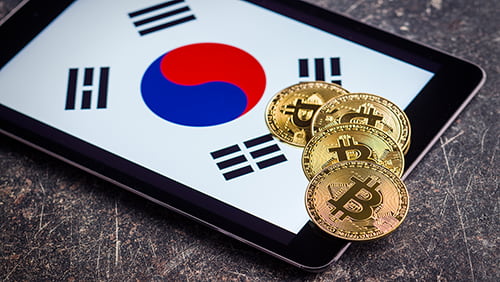 South Korea is doing what the US can’t, or won’t, do. It is grabbing the proverbial bull by the horns and taking cryptocurrency to an entirely new level. While some countries, including the US, apparently are still unable to fathom the benefits of digital currency, South Korea is bringing it to established consumer channels that will have far-reaching positive results for wider adoption on a global scale. For everything from ordering take-out to travel to gambling, crypto is gaining momentum in all industries.
South Korea is doing what the US can’t, or won’t, do. It is grabbing the proverbial bull by the horns and taking cryptocurrency to an entirely new level. While some countries, including the US, apparently are still unable to fathom the benefits of digital currency, South Korea is bringing it to established consumer channels that will have far-reaching positive results for wider adoption on a global scale. For everything from ordering take-out to travel to gambling, crypto is gaining momentum in all industries.
South Korea was one of the first countries to understand the role crypto can play as the next cycle of currency, and has been behind some of the biggest leaps forward over the years. Going forward, it will add even more support, which will lead to greater awareness and utilization. Card and cash payments provider Innotech and CIC Enterprise have teamed up to launch a project that will allow crypto to be used to purchase services along some of Busan’s beach areas, which will make the necessity of having to carry a wallet obsolete.
Thanks to the program, tourists will be able to use several digital currencies to pay for things like life jacket or parasol rentals, watersports and more. There is no need to use a separate app – just an existing crypto wallet and a QR code – and the payments are processed in under ten seconds. CIC Enterprise said in a statement, “We hope that the virtual currency used in the Haeundae-gu beach system will be more widely used in real life. We will try to provide a cryptocurrency payment environment.”
South Korea is also bringing crypto to its toll roads. KEB Hana Bank has entered into an agreement with the Korea Expressway Corporation (KEC), the country’s state-backed highway system manager, to allow blockchain-based payments at highway toll booths. The system will be in place by the end of the year, and drivers will be able to make and defer crypto payments, and even request refunds, using KEB’s Hana One Q app. KEC head of sales Kwang-Ho Lee explains, “We will continue to expand customized non-face-to-face (contactless) services to the public by applying blockchain technology, which is part of the Korean version of the digital new deal policy to lead the global economy after the coronavirus.”
All of this attention is helping transform shoppers’ mentalities and ushering in a new era of payments that focus more and more on digital currencies. With that, and the push for cheaper, safer payment alternatives in the gambling ecosystem, it’s easy to forecast the important role crypto will have in operations at both online and retail casinos. In the overall scheme of things, the transformation from conventional paper money to digital currency has been occurring at a moderate pace, and this is about to pick up within the next two to three years, especially in gaming. It’s extremely easy to envision a time when digital currencies are the go-to payment alternative for gamblers, leaving today’s fiat relegated to the bottom of the list.






